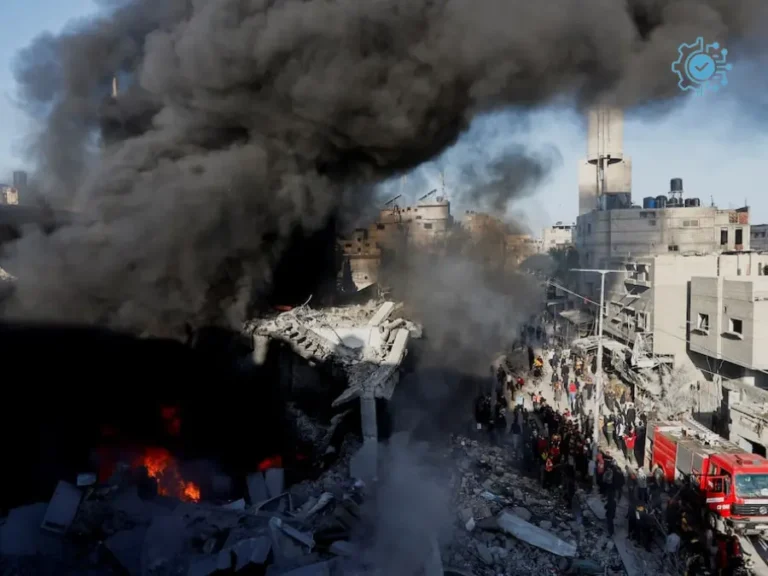India and Pakistan Both Claim Victory
In a surprising yet cautiously welcomed move, India and Pakistan both claim victory following a ceasefire deal that was announced early Monday morning. The ceasefire agreement, brokered behind closed doors after weeks of rising tensions, has sparked hope, skepticism, and political posturing on both sides of the border.
A Fragile Truce After Days of Hostility
The Build-Up to the Ceasefire
The border between India and Pakistan, particularly along the Line of Control (LoC), has seen intense military activity over the past few weeks. Drone incursions, artillery fire, and covert strikes raised fears of a full-scale war. Both nations had accused each other of unprovoked aggression.
However, as diplomacy stepped in, the narrative changed. India and Pakistan both claim victory following the ceasefire deal, with each government portraying the agreement as a strategic win in domestic media.
Behind-the-Scenes Diplomacy
While details remain classified, insiders suggest that the United States, UAE, and possibly even China had roles in mediating the truce. Yet the optics of the deal are being tightly controlled, and unsurprisingly, India and Pakistan both claim victory following the ceasefire deal without giving much credit to international intermediaries.
National Reactions to the Ceasefire
India’s Perspective: “We Achieved Peace on Our Terms”
India’s Ministry of External Affairs declared the ceasefire a triumph of Indian diplomacy and military strength. “Our calculated deterrence compelled our neighbor to step back,” said a senior Indian official. According to government spokespeople, India and Pakistan both claim victory following the ceasefire deal, but only one side did so from a position of strength—India.
Pakistan’s Standpoint: “We Safeguarded Our Sovereignty”
Pakistan’s Foreign Ministry, on the other hand, painted a very different picture. Officials claimed they stood firm against Indian aggression and defended national sovereignty. Prime Minister Shahbaz Sharif stated, “Our resilience forced the enemy to the negotiation table.” As expected, India and Pakistan both claimed victory following the ceasefire deal, but Pakistan emphasized its resistance and diplomacy as the key factor behind peace.
Media Wars and Public Perception
Competing Narratives
The headlines in both countries’ newspapers on Tuesday morning told two very different stories. Indian outlets described a victorious resolution and strategic patience, while Pakistani media highlighted their nation’s “successful defiance.” In reality, India and Pakistan claim that following the ceasefire deal, reflecting the deeply entrenched narrative battles, more than actual diplomatic outcomes.
Public Response and Social Media Buzz
Social media in both countries erupted with patriotic fervor. Hashtags like #CeasefireWin, #LOCVictory, and #PeaceWithHonor trended for hours. However, a more skeptical segment of the population questioned the sustainability of the ceasefire. After all, India and Pakistan both claim victory following the ceasefire deal, but peace on the ground remains fragile.
Military Experts Warn: “Don’t Celebrate Yet”
Ceasefire Does Not Mean End of Hostility
Defense analysts from both nations are urging caution. Retired Indian General R.S. Bakshi noted, “Ceasefires are temporary. History shows us that without trust and continued dialogue, these truces break quickly.” Similarly, Pakistani strategist Ayesha Jilani warned, “Until deeper political issues are addressed, India and Pakistan both claim victory following the ceasefire deal could be just another temporary fix.”
Peacekeeping Along the LoC
Since the announcement, both armies have reduced their forward deployments and artillery positions along the LoC. Still, the presence of troops remains high. Surveillance drones and intelligence operations continue. Although India and Pakistan both claim victory following the ceasefire deal, the military readiness suggests no one is letting their guard down.
Global Reactions and Strategic Implications
The Role of International Players
Washington and Beijing both welcomed the ceasefire as a step toward regional stability. The UAE issued a formal statement praising both nations for their “commitment to dialogue.” These signals show that India and Pakistan both claim victory following the ceasefire deal, but the global community is invested in ensuring it holds.
Regional Stability and Trade Implications
If the ceasefire leads to sustained peace, there could be renewed efforts toward economic cooperation. Cross-border trade, halted due to border hostilities, may resume. For now, though, all economic plans are on pause as India and Pakistan both claim to follow the ceasefire deal, but long-term normalization remains uncertain.
Challenges Ahead for Lasting Peace
The Kashmir Question
No analysis is complete without addressing the Kashmir issue. Any long-term peace depends on serious dialogue over this contentious region. Without it, the fact that India and Pakistan both claim victory following the ceasefire deal will be irrelevant in the face of renewed violence.
Political Will and Domestic Pressures
Both governments face intense domestic scrutiny. In India, national elections loom large, and in Pakistan, a fragile coalition struggles with economic challenges. These political calculations heavily influence foreign policy decisions, making the situation unpredictable. Even though India and Pakistan both claim victory following the ceasefire deal, internal politics may soon push either nation to abandon the truce.
Conclusion: A Step Forward or Déjà Vu?
At the moment, India and Pakistan both claim victory following the ceasefire deal, but the path ahead is full of uncertainty. This ceasefire could mark the beginning of a new chapter in South Asian relations—or just another short-lived pause in a long history of conflict.
For the people of both nations, who have suffered immensely due to cross-border violence, the hope remains that this time is different. Whether this peace lasts or crumbles under political pressure remains to be seen. For now, the world watches closely as India and Pakistan both claim victory following the ceasefire deal, yet continue to navigate one of the world’s most dangerous rivalries.
Stay updated with the latest Operation Sindoor news only on TechNewsHubs.


